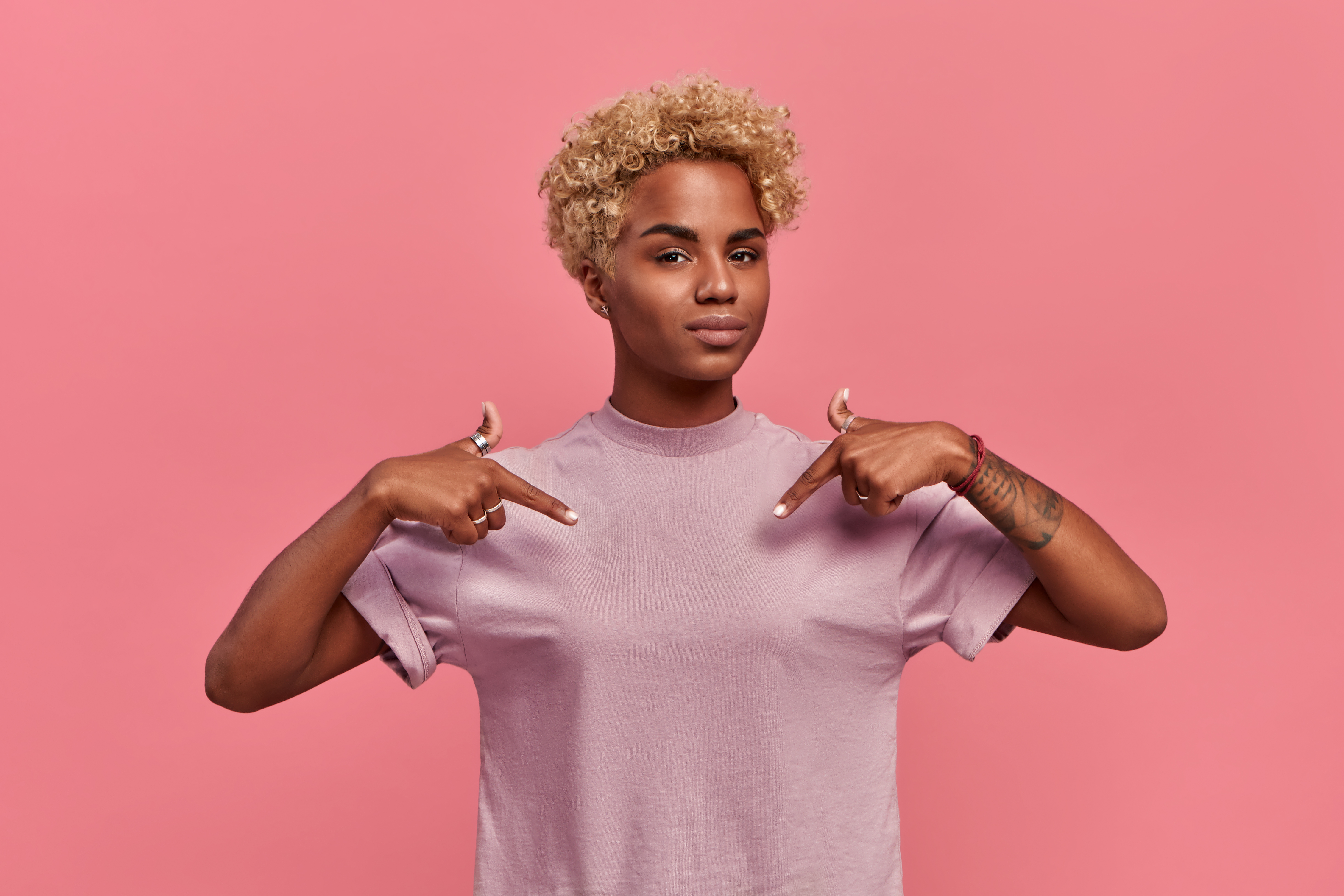Sophie’s world is full of unexpected twists, thanks to her boyfriend Max, the ultimate prankster. His jokes can light up any room, but when one prank goes too far, it sets off a chain of events that could change everything. Will their love survive the ultimate test of patience and humor? Join their unpredictable adventure to find out.

I’m Sophie, a 20-year-old university student with a love for quiet evenings and good books. But life took a wildly unpredictable turn a year ago when I met Max, my boyfriend.
Max is 29, works in graphic design, and is the kind of guy who is impossible to overlook. With a booming laugh and a personality just as large, he has a wild sense of humor that can instantly brighten any room he enters.
We met at a mutual friend’s birthday party, where he was the life of the party, pulling harmless pranks and cracking jokes that had everyone in stitches.
I was drawn to his charisma and the ease with which he could make people laugh. From there, our connection grew into a whirlwind relationship filled with laughter and the unexpected.
Max’s playful spirit is one of the things I cherish about him. He’s the sort who plans surprise outings, leaves goofy notes in my textbooks, and can always sense when I need cheering up.
His creativity isn’t just limited to his job; it spills over into every aspect of his life, making our days together vibrant and full of surprises.
However, living with a perpetual prankster also means I’m often on my toes, never quite knowing what playful scheme he’ll come up with next.
For the past year, we’ve been navigating through life’s ups and downs, with plenty of laughter along the way, thanks to Max’s endless pranks. Our friends often join in the fun, and together, we’ve shared some hilarious moments.

But here’s the thing—Max sometimes doesn’t know when to stop. His pranks, meant to amuse, occasionally cross the line, leaving me to deal with the aftermath.
Like the time he replaced all my skincare products with mayonnaise. I couldn’t wash my face for days without smelling like a sandwich!
But nothing topped the evening when he took things too far with what he called a “romantic dinner surprise.”
I was all dressed up, excited for the evening, imagining a candlelit table and a delicious meal. When I arrived, the room was indeed dimly lit with candles flickering softly, creating shadows that danced across the walls.
My heart fluttered with anticipation until I saw the “guests.” Scattered across the table, amidst what should have been dishes of exquisite food, were dozens of cockroaches! They skittered over plates and among silverware, completely taking over the table.

Max burst out laughing from the kitchen, thrilled with his creativity. “It’s a horror-themed dinner! Romantic, right?” he joked. But for me, it wasn’t funny—it was horrifying.
That night, as I struggled to get the image of cockroaches out of my mind, something within me snapped.
I knew I had to do something about this, but before I could, Max was at it again. We had planned a dream vacation to the Caribbean, something I had eagerly anticipated for months.
As we arrived at the airport, buzzing with the excitement of our upcoming adventure, everything came crashing down during the security checks.
Max, thinking it would be hilarious, had slipped prohibited items into my luggage. The discovery led to me being detained, questioned, and ultimately, us missing our flight. The vacation we had looked forward to was ruined, all because of a prank that went too far.
The airport fiasco was the last straw. I knew it was time for a lesson Max wouldn’t forget. It was time he learned how it felt to be on the receiving end of a prank. I was set on a path to plot my revenge, determined to teach him a lesson.
I meticulously crafted a plan centered around something he cherished deeply—an upcoming Eminem concert. Max was a die-hard fan of Eminem and had been dreaming of seeing him live for as long as I could remember. The opportunity was too perfect to pass up.
First, I purchased two real tickets to the concert, a hot item that was nearly impossible to get. Then, with a bit of help from a tech-savvy friend, I created an exact replica of these tickets—fake, but convincing enough to fool anyone at a glance.
I presented these counterfeit tickets to Max with a flourish, watching his face light up with uncontainable excitement. “Babe, you’re the best! Eminem, here we come!” he exclaimed, hugging me tightly. Little did he know what I had in store.

As the day of the concert approached, Max’s excitement was palpable. He planned to go with a small group of friends, buzzing with anticipation. I kept the real tickets safely with me, preparing for the pivotal moment of my plan.
On the day of the concert, we all headed to the venue together, but I subtly drifted away to join a different line, blending in with the crowd. Max and his friends, confident and loud, approached the entrance, tickets in hand.
I watched from a distance as they handed their tickets to the security guard. The confusion on the guard’s face, followed by Max’s growing irritation, was visible even from afar. “I’m sorry, sir, but these tickets are fake,” the guard announced sternly.
Max’s confident smile faltered, turning into a frown. “What? That’s impossible!” he protested, but the guard was firm, and they were swiftly pulled aside.
It was at this moment that I chose to make my appearance. Walking past them with a smirk, I flashed my real tickets at the guard, who nodded and let me through.
Max’s eyes widened in disbelief. “Sophie? What’s—how—?” he stammered, realization dawning on him. I turned to him with a playful yet pointed look. “Now you know how it feels, huh?” I called out over the noise of the crowd, my voice laced with triumph.
Seeing him standing there, defeated and embarrassed, drove my point home. He was speechless, a rare sight for someone who always had a joke up his sleeve. As I disappeared into the crowd, the cheers and beats of the concert muffled his calls.

That night, Max experienced firsthand the sting of his pranks, a sting he’d so often inflicted on others. After the concert, we had a long, serious talk.
Max admitted the prank had opened his eyes to how his actions affected those around him. “I guess I never really thought about how it feels on the other end,” he confessed. From that day on, he toned down his pranks, making sure they were all in good fun and never at the expense of others’ feelings.
The Eminem concert was not only a night of great music but also a turning point in our relationship, teaching Max a vital lesson in empathy and consideration, thanks to a little creative planning on my part.
Enjoyed the read? Here’s another about Kathy, who, when belittled by her fiancé in front of his intellectually pompous friends, decided it was time to flip the script and cleverly crafted a comeback that left everyone speechless.
Outsmarted: How I Turned the Tables When My Fiancé Embarrassed Me in Front of His ‘Genius’ Friends
My path began at 16, when life threw a curveball. My father left for Europe, abandoning us as my mother battled illness. As the eldest, I took responsibility, diving into the nearest job at a hair salon. Starting with mundane tasks like washing hair and sweeping, I climbed the ladder through sheer determination.
My skills flourished, and I carved a niche among the elite, becoming a sought-after hairstylist. Amidst this, I met Stan at a music festival, a sharp contrast to my world with his Yale law background.
Despite my achievements, Stan sometimes overlooks the intelligence my career demands. It’s been a ride of passion, hard work, and love, mingling contrasting worlds in search of mutual respect.
Reflecting on our journey, I’ve noticed a pattern of subtle disparagements from him, especially concerning my education and career as a hairstylist. These moments have gradually built up, creating an undercurrent of tension between us.
Our relationship, which started with so much promise and understanding, began to reveal cracks as Stan’s casual jokes about my job became a recurring theme. At first, I brushed them off, attributing them to his sense of humor. However, over time, these comments felt less like jokes and more like veiled criticisms.

He would often compare our educational paths, highlighting his Ivy League background while downplaying my self-made success. In social settings, I noticed his reluctance to discuss my career, as if it was a topic unworthy of conversation among his academic peers.
Our engagement began to weigh on me. The ring he gave me reminded me of the wealth he had and the education that helped him earn so much. Was I really just a mere hairdresser?
This growing tension culminated in a dinner that I can only describe as the straw that broke the camel’s back. We were dining with a group of Stan’s friends from law school, a setting where I already felt the unspoken judgment of being the only non-academic in the room.
The evening was progressing with typical conversations about legal theories and case studies, subjects far removed from my daily experiences but interesting nonetheless.
The turning point came when one of Stan’s friends, perhaps in an effort to include me in the conversation, asked for my perspective on a current event. Before I could even formulate a response, Stan interjected with a dismissive, “Don’t bother asking her; she’s just a hairdresser.
She doesn’t care about this kind of thing, right, honey?” His words, sharp and belittling, echoed around the table, meeting a mix of awkward silences and forced chuckles.
I was stunned, not just by the public humiliation, but by the realization that the man I loved saw me as less than. My face flushed with embarrassment and anger, yet I chose to hold my composure.
In a quiet, sarcastic retort, I said, “Okay, thanks, Stan, I’m so glad you made sure I didn’t embarrass you.” The rest of the evening, I remained silent, my mind racing with thoughts and emotions.

Reflecting on that night, I recognize it as a pivotal moment in our relationship. It was a wake-up call, highlighting the deep-seated issues we needed to address.
Stan’s comment was not just about that dinner; it symbolized his underlying attitude towards my profession and, by extension, towards me. It made me question our compatibility and whether mutual respect could ever be the foundation of our relationship.
Since that dinner, I’ve been contemplating our future together. It’s clear that for our relationship to thrive, or even survive, we need to have some serious conversations about respect, understanding, and appreciation of each other’s paths and contributions.
That evening’s events have ignited a stronger sense of self-worth in me and a determination to demand the respect I deserve, not just from Stan, but from everyone in my life.
After the dinner debacle, a fire was lit within me. The next day at work, while styling a client’s hair, an idea began to form. I was determined to make Stan realize the value of my profession and regret his belittling remarks.
During my break, I reached out to my clients, explaining my plan and asking for their help. To my delight, they all agreed, eager to support me. The majority of women whose hair I styled had been belittled by men at some point in their lives, so they were glad to bite back. I organized a dinner, not just any dinner, but one that would unveil the true extent of my professional world to Stan.

I called Stan, playing it cool, as if everything was back to normal. He seemed relieved, thinking I had calmed down from our last encounter. I invited him to dinner, hinting it was a casual gathering with “some of my friends.” He readily accepted, unaware of what awaited him.
That evening, I welcomed Stan into a room filled with my clients: successful entrepreneurs, renowned artists, and influential figures, all of whom I had met through my salon. As the night unfolded, Stan was visibly impressed and increasingly uneasy.
Conversations around us highlighted not just the artistry of hairstyling but also its impact on networking and business in the high-profile circles.
Each story shared by my clients subtly underscored the intellect and sophistication required in my line of work, challenging Stan’s preconceived notions.
The highlight of the evening was when a well-known business mogul publicly thanked me for my creativity and professionalism, attributing part of his social success to the confidence my work instilled in him.
Stan was taken aback to discover that Mrs. Williams, his boss, was among my clients. “Honey, how do you know Mrs. Williams? She’s my boss. I have to introduce myself; this could be the chance for a promotion,” he suddenly said. I put my arm around Stan and led him straight up to a group of women, including his boss.
“Hello ladies, I’ve been eager to introduce you to my fiancé. Meet Stan. Please be gentle with him; he’s an assistant and tends to get a bit anxious around influential women, right, sweetheart?” I said sweetly.
Stan looked shocked and terrified. “No, no, I am a Yale Law graduate, I’ve worked in your firm for two years and am aiming to become a junior partner soon, and I—” he faltered, and the women gave him an indulgent smile, as if he were a boasting child, before continuing their conversation.

Stan got furious. He took me aside. “How could you do this to me?” he snapped. “I looked like a fool, thanks to you, and felt so embarrassed.”
“Hurts, huh? I just showed you the same treatment you gave me at dinner with your friends. These people are my friends and listen to what I say,” I told him confidently.
The women, my clients, and friends, responded with indulgent smiles, treating him with a benign condescension that mirrored the way he had previously diminished my career. This reversal of roles left Stan flustered and, later, furious. He confronted me, feeling humiliated and exposed.
I calmly explained that this was the mirror image of what I experienced at the dinner with his friends. It was a lesson in empathy, a way for him to understand the impact of his words and actions.
I made it clear that my intent was not to belittle but to illuminate the respect and acknowledgment everyone deserves, regardless of their profession.
When Stan called me a couple of days later to apologize tearfully, I was rather cold-hearted. I knew he had the best intentions at heart; however, I couldn’t fathom building a future with a man who had thought so little of me for so long.
After some thinking, I handed him the diamond ring he had given me. We could start anew, but I was going to rethink our engagement.



